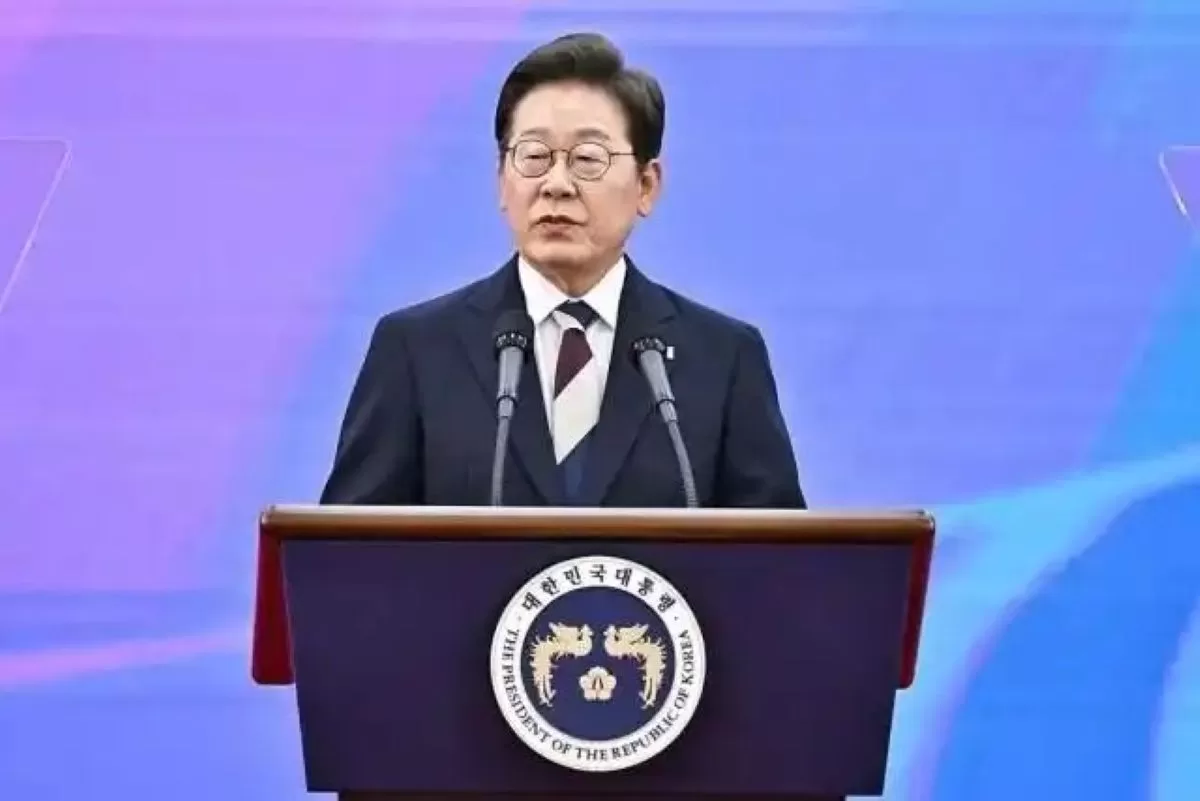
SEOUL, June 4 (WSH) — After surviving an assassination attempt, facing ongoing criminal charges, and enduring years of political turbulence, Lee Jae-myung has officially become the President of South Korea. Often referred to by local media as the “Phoenix of Korean Politics,” Lee’s political journey is nothing short of extraordinary—a narrative marked by resilience, confrontation, and a relentless rise from the political margins to the pinnacle of national power.
Lee, 61, represents a sharp departure from Korea’s traditional elite leadership. Raised in a poor family and afflicted with a workplace-related illness during his teenage years, Lee worked his way up through self-study to become a lawyer advocating for society’s most vulnerable. His working-class background and populist rhetoric have earned him a loyal base among young voters and the urban working class.
From Emergency Law to Electoral Triumph
Lee’s rise was catalyzed by an unprecedented political crisis. In late 2024, then-President Yoon Suk-yeol declared a state of emergency in an attempt to suppress opposition forces, triggering mass protests across the country. Yoon was swiftly impeached and removed by the Constitutional Court. Lee seized the moment, positioning himself as a guardian of democracy and quickly gaining momentum. His Democratic Party ran on a “Judgment on the Coup” slogan and secured a decisive electoral victory in the emergency presidential election.
“People were shocked by the declaration of martial law. It turned the election into a reckoning for democracy,” said Park Sung-min, CEO of Seoul-based Min Consulting.
From Fighter to Statesman: Can Lee Unite a Divided Nation?
Lee has promised national unity and no political retribution. Yet, his previous remarks—vowing to punish those who collaborated with Yoon’s emergency decree—have left many skeptical, especially among conservatives. Political analyst Ahn Byung-jin of Kyung Hee University noted: “His situation is uniquely difficult. He must lead while facing unresolved legal issues and a deeply divided society.”
Lee remains entangled in several criminal cases, including bribery and election law violations. Although his party passed legislation allowing presidential immunity from trial during his term, the opposition denounces it as self-serving. He is scheduled to appear in Seoul High Court on June 18.
A Pragmatic Foreign Policy Amid Global Tensions
Lee advocates a pragmatic, interest-based foreign policy, aiming to maintain the U.S.-Korea alliance while restoring relations with China and North Korea. “If necessary for my people, I will walk between Trump’s legs,” Lee famously said, later adding, “But I will never be anyone’s pawn.”
Chinese foreign affairs expert Xu Zhijian noted, “Lee is likely to recalibrate Seoul’s one-sided alignment under Yoon, especially by rebuilding cooperation mechanisms with Beijing in trade, culture, and local diplomacy.”
Professor Ma Zhaoxu of the China Foreign Affairs University added, “Given the high degree of China-Korea economic interdependence, Lee’s ‘pragmatic turn’ is mutually beneficial.”
Domestic Reform vs. Conservative Resistance
On the domestic front, Lee has proposed an ambitious economic agenda—ranging from welfare expansion and regional stimulus vouchers to industrial innovation and demographic response strategies. However, opponents criticize these initiatives as populist and fiscally unsustainable.
His controversial “local currency” policy, suspended in 2022, may return, reigniting debates on its feasibility. Meanwhile, opposition lawmakers are likely to resist any revival of the 25 welfare-focused bills vetoed by Yoon’s administration.
Cautious Approach to Pyongyang
Lee’s North Korea policy signals cautious engagement. He opposes rushing into summits, instead proposing to start with humanitarian aid and low-level cooperation. Yet with inter-Korean ties at a historic low, even minor progress will be difficult.
What Does Lee Represent for the Region?
Liu Qing, a senior researcher at the China Institute of International Studies, said: “Lee is not just a Korean political figure. He is emerging as a wildcard in Northeast Asia’s evolving geopolitical landscape. Whether he can break Korea’s cycle of polarization and retaliation will define his presidency—and perhaps regional stability.”
From sweatshop survivor to head of state, Lee Jae-myung embodies the symbolic journey of upward mobility in Korean society. Now, the world watches to see if his pragmatic ideals can lift South Korea out of economic uncertainty, political gridlock, and diplomatic pressure.

